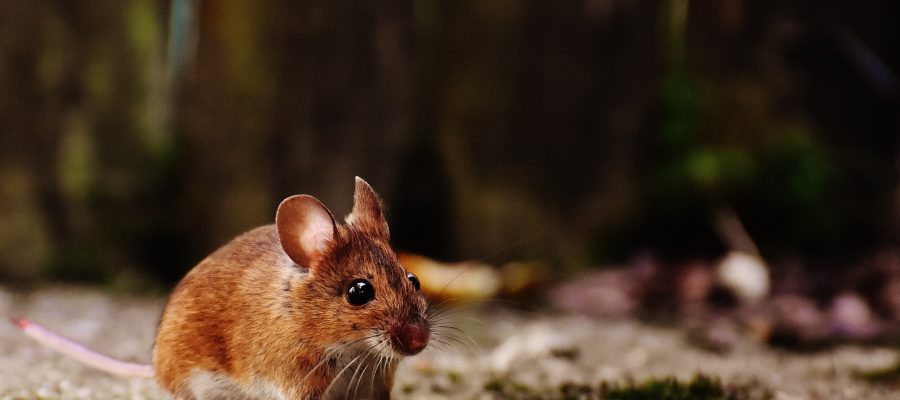How to Spot the Signs of a Rodent Infestation (And How to Handle It)
- October 3, 2022
- in Pest Control
- by Steven Gill

Australia’s worst-ever plague of mice occurred in 1993 and caused around $96 million worth of damage. Yet despite the damage to big businesses and agriculture, rodents can cause problems on a much more personal level. So how do you stop them from invading your home and destroying your property?
Once inside the home, rodents can be hard to remove. Read on as we tell you the common signs of rodent infestation and what to do about it.
There are many signs of rodent infestation in the home. However, not all of them are as obvious as you may think. Below, we have collected the most important ones.
Droppings are the first sign of an infestation. It can be hard to tell the difference between them and other types of dirt, as they appear as small brown balls or specks. The difference is that they will clump together in one area as opposed to spreading around.
The darker in color the dropping is, the fresher the feces. You may also notice small trails of urine in the area. Typically, rodents tend to follow the same paths staying close to walls and skirting boards, so finding them in this area is a definite sign.
Rodents can cause a lot of destruction to your furniture and fittings. They will find access points and gnaw away at them to make them wider. This can leave electrical lines exposed and holes in drywall or wood.
These holes do not even need to be big. They can be the size of a coin and mice can get in. Check the exterior of the home for places where you think they may have gained access and see if entry points have been widened.
Rodent excrement and urine have a very distinctive smell. It is a musky odor, that gets worse if animals die in your walls and then begin to rot. Not only this, but they can carry horrible diseases which are dangerous if they come into contact with humans.
It is best to do a full clean before sealing up holes, usually with steam cleaners. Make sure a pest control expert checks it before you do so that nothing gets stuck in the wall space.
Nests are hard to spot and identify. They are usually made in places that won’t be disturbed, so you may seldom go there. Old boxes and space in the roof space or garage are perfect.
When you do find them, they look like a bundle of leaves. With around 10 mice per litter and breeding taking part several times a year, it is important to find and eliminate them.
All types of rodents come to a property seeking two things: Warmth and food. Therefore, if you keep finding boxes chewed and packets with holes in the bottom, it is a sign rodents have been feasting on them.
Prevention is much better than a cure when it comes to rodents. They can be very hard to remove fully and problems can soon come back. It is best to get the help of pest control services, and then address the issues below.
You can not remove food from your house entirely, but you can prevent rodents from accessing it. The first step is to make sure you are cleaning food areas. Remove scraps and crumbs immediately so there is no excess for them to feed on.
If you have bread and cereals in packets and boxes, place them in plastic Tupperware. This makes it hard for the rodents to get them. You should also do this with any pet foods or if you have livestock, feed, and grains.
Once you have had an expert to help clean the house and remove rodents, you need to prevent them from entering again. Check your rooms and look for possible entry points. You then need to block them with fillers, concretes, or sheet metal.
Many rodents will make nests outside the home but find their way inside for food. Therefore, if you remove hiding spots around the building you can prevent them from ever finding your place.
Make sure outdoor bins are sturdy with tightly fitted lids. Get them emptied regularly and remove any trash from around the yard or garden. Don’t forget to clean out any sheds or storage areas as well.
If you have materials that need stacking, such as firewood, then raise them. They should be piled up at least 30cm above ground level. This prevents nesting within them.
If you have vessels for keeping rainwater, then cover them with a wire mesh. This also goes for floor vents, which may also allow access to the property.
If you compost your waste, then you need to do it carefully. You should not create any sort of open compost heap, as this just presents a huge food store for rodents. Get a closed container from a garden store.
You should also consider what you are composting. Don’t place any meat products like chicken or fish in the compost. Even dairy like cheese, butter, and yogurt should be avoided.
The problem with a rodent infestation is that even if you do the above, you only need to miss one thing for it to quickly come back. It could be an unplugged hole or a woodpile that has not been raised. That is why it helps to get expert assistance.
Safeguard Pest Control offers that peace of mind without disruption to your property and those in it. We are safe and eco-friendly with award-winning service. Contact us here to get a free estimate.
Array